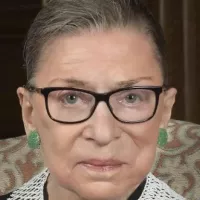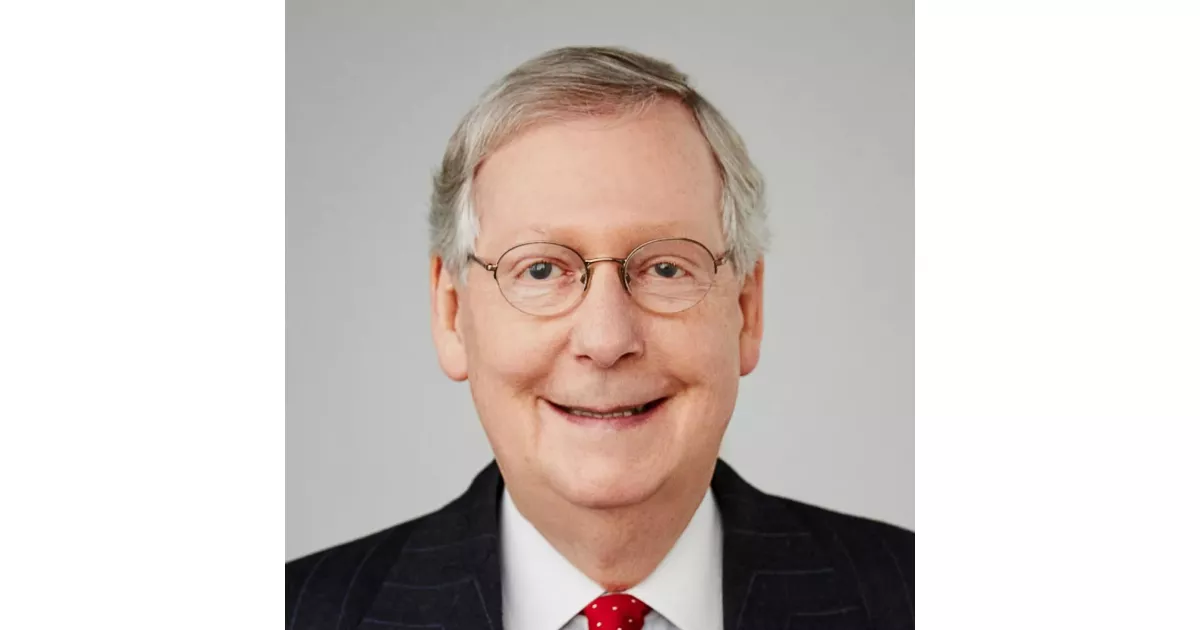A closer look at the most debated and controversial moments involving Mitch McConnell.
Addison Mitchell McConnell III is a prominent American politician and attorney currently serving as the senior United States senator from Kentucky, a position he has held since 1985. He is the longest-serving senator in Kentucky's history. McConnell's influence extends to his leadership within the Senate Republican Conference from 2007 to 2025, including terms as both minority and majority leader. Notably, he holds the record as the longest-serving Senate party leader in U.S. history, having served as majority leader from 2015 to 2021.
June 2009: McConnell on Sotomayor Nomination
In June 2009, after Barack Obama nominated Sonia Sotomayor as associate justice, Mitch McConnell and Jeff Sessions opined that Sotomayor's 17 years as a federal judge and over 3,600 judicial opinions would require lengthy review and advocated against Democrats hastening the confirmation process.
May 2010: McConnell on Kagan Nomination
In May 2010, after President Obama nominated Elena Kagan to succeed the retiring John Paul Stevens, Mitch McConnell expressed concerns about her independence from the White House and announced his opposition to her confirmation, citing her lack of forthrightness on constitutional law views.
October 2010: McConnell's Goal: One-Term Obama Presidency
In October 2010, Mitch McConnell stated that his "single most important thing" was for President Obama to be a one-term president.
2010: Congress Bans Earmarks
In 2010, Congress banned the practice of earmarks, which Mitch McConnell regularly obtained for businesses and institutions in Kentucky.
2010: Supreme Court partially overturns Bipartisan Campaign Reform Act
In 2010, the Supreme Court made a ruling that partially overturned the Bipartisan Campaign Reform Act (McCain-Feingold), following McConnell's opposition to stricter campaign finance laws.
2010: Citizens United v. FEC Decision
In 2010, the U.S. Supreme Court delivered its decision in Citizens United v. FEC, partially overturning the Bipartisan Campaign Reform Act (McCain-Feingold). Mitch McConnell led opposition to stricter campaign finance laws, which culminated in this decision.
2011: Debt-Ceiling Crisis
In 2011, Mitch McConnell learned from the debt-ceiling crisis that "it's a hostage that's worth ransoming".
2014: Republicans Gain Senate Control; McConnell Becomes Majority Leader
In 2014, Republicans gained control of the Senate, and Mitch McConnell became majority leader. He then began what was considered "a near blockade" of Obama's judicial appointments.
February 13, 2016: McConnell Blocks Obama's Supreme Court Nominee
On February 13, 2016, following the death of Supreme Court Justice Antonin Scalia, Mitch McConnell announced that the Senate would not consider any Supreme Court nominee put forth by President Obama, arguing that the American people should have a voice in the selection of their next Supreme Court justice.
March 16, 2016: Obama Nominates Merrick Garland to Supreme Court
On March 16, 2016, President Obama nominated Merrick Garland to the Supreme Court. Under Mitch McConnell's direction, Senate Republicans refused to take any action on the nomination.
May 2016: McConnell Disagrees with Trump on Comments About Judge Curiel
In May 2016, Mitch McConnell publicly disagreed with Donald Trump's suggestion that federal judge Gonzalo P. Curiel was biased due to his Mexican heritage, emphasizing that Curiel was born in Indiana and that Americans come from diverse backgrounds.
July 2016: McConnell Responds to Trump's Criticism of Humayun Khan's Parents
In July 2016, Mitch McConnell responded to Donald Trump's criticism of the parents of Humayun Khan, a Muslim-American soldier, by stating that all Americans should value the patriotic service of those who defend the country.
August 2016: McConnell Comments on Blocking Obama's Supreme Court Nominee
In August 2016, Mitch McConnell said that one of his proudest moments was when he told Barack Obama that he would not fill the Supreme Court vacancy.
October 7, 2016: McConnell Responds to Donald Trump Access Hollywood Controversy
On October 7, 2016, following the release of the Donald Trump Access Hollywood tape, Mitch McConnell stated that Trump needed to apologize directly to women and girls everywhere and take full responsibility for his disrespectful comments.
January 3, 2017: Garland's Nomination Expires
On January 3, 2017, Merrick Garland's nomination to the Supreme Court expired with the end of the 114th Congress, due to the Senate's inaction under Mitch McConnell's direction.
April 7, 2017: Gorsuch Confirmed After Filibuster Eliminated
On April 7, 2017, Neil Gorsuch's nomination to the Supreme Court was confirmed after Mitch McConnell eliminated the filibuster on Supreme Court nominees.
April 2017: Republicans Eliminate Filibuster for Supreme Court Nominations
In April 2017, Senate Republicans led by Mitch McConnell eliminated the filibuster for Supreme Court nominations in order to end debate on the nomination of Neil Gorsuch.
April 2018: McConnell Calls Garland Nomination Decision Most Consequential
In April 2018, Mitch McConnell stated that the decision not to act on Merrick Garland's nomination to the Supreme Court was "the most consequential decision I've made in my entire public career".
September 2018: Ford Accuses Kavanaugh of Sexual Assault
In September 2018, Christine Blasey Ford publicly alleged that Brett Kavanaugh had sexually assaulted her in 1982, leading to increased scrutiny of Kavanaugh's nomination. McConnell accused Democrats of creating an "extreme" distortion of Kavanaugh's record during his hearings.
October 2018: McConnell on Supreme Court Vacancy
In October 2018, Mitch McConnell stated that if a Supreme Court vacancy were to occur in 2020, he would not repeat his 2016 decision to let the winner of the upcoming presidential election nominate a justice, arguing that the 2016 precedent was not applicable because Republicans controlled both the presidency and the Senate in 2020.
November 5, 2019: McConnell Comments on Trump Impeachment Trial
On November 5, 2019, as the House of Representatives began public hearings on the impeachment of President Trump, Mitch McConnell stated that he was fairly certain how an impeachment trial would likely end, indicating it would not lead to Trump's removal from office.
December 14, 2019: McConnell Discusses Trump's Impeachment Trial Strategy
On December 14, 2019, Mitch McConnell met with White House counsel Pat Cipollone and White House legislative affairs director Eric Ueland. Later that day, he stated that he would be in "total coordination with the White House counsel's office" for Trump's impeachment trial and that there was "no chance" the Senate would convict Trump and remove him from office.
December 17, 2019: McConnell Rejects Witnesses for Trump's Impeachment Trial
On December 17, 2019, Mitch McConnell rejected a request to call four witnesses for Donald Trump's impeachment trial, stating that the Senate's role was to act as judge and jury, not to investigate. He also told the media he was not an impartial juror, calling it a political process.
2019: McConnell withholds votes on House Democrat measures
In 2019, Nancy Pelosi criticized McConnell for withholding votes on measures passed by the Democratic-controlled House during his time as Senate majority leader, including the For the People Act of 2019, the Equality Act, and the Paycheck Fairness Act.
April 22, 2020: McConnell suggests states declare bankruptcy instead of receiving COVID-19 aid
On April 22, 2020, during a radio show, McConnell suggested that states should be able to declare bankruptcy instead of receiving additional COVID-19 aid. His comments were criticized by state and local officials.
September 2020: McConnell Announces Senate Vote on Ginsburg Replacement
In September 2020, after the death of Ruth Bader Ginsburg, Mitch McConnell announced that the Senate would vote on Donald Trump's nominated replacement, setting the stage for a contentious confirmation process.
2020: McConnell Criticizes Trump's Attempts to Overturn Election
In 2020, Mitch McConnell criticized Donald Trump's attempts to overturn the presidential election.
2020: McConnell Refuses to Recognize Biden's Victory Initially
In 2020, after Joe Biden defeated Trump in the election, McConnell initially refused to recognize Biden as the winner. While not repeating Trump's voter fraud claims, McConnell argued that Trump had the right to challenge the results and celebrated Republican Senate and House race wins.
January 12, 2021: Reported Support for Trump Impeachment
On January 12, 2021, it was reported that Mitch McConnell supported impeaching Donald Trump for his role in inciting the 2021 storming of the United States Capitol, believing it would help Republicans purge the party of Trump.
February 13, 2021: McConnell Votes to Acquit Trump
On February 13, 2021, Mitch McConnell voted to acquit Donald Trump in his impeachment trial, stating it was unconstitutional to convict a president who was no longer in office.
April 10, 2021: Trump Attacks McConnell Publicly
On April 10, 2021, Donald Trump publicly attacked Mitch McConnell, calling him a "dumb son of a bitch" and questioning whether McConnell had ever thanked him for hiring his wife, Elaine Chao.
May 28, 2021: McConnell Votes Against Independent Commission for January 6 Attack
On May 28, 2021, Mitch McConnell voted against the creation of an independent commission to investigate the January 6 United States Capitol attack, after seeking to organize Republican senators to filibuster it.
Mentioned in this timeline

Donald John Trump is an American politician media personality and...

Bill Clinton the nd U S President - served as...

Barack Obama the th U S President - was the...

Martin Luther King Jr was a pivotal leader in the...

Ruth Bader Ginsburg was an American lawyer and Supreme Court...

Rand Paul is an American politician and ophthalmologist He has...
Trending

3 months ago Jessie Diggins, US cross-country skiing icon, to retire after the upcoming season.

Nick Baumgartner is an American snowboarder known for competing in snowboard cross SBX He has participated in multiple Winter Olympics...
3 months ago NYT Strands Hints and Answers for November 21, 2025: Solving the Puzzle
8 months ago KeyBank Foundation Backs Affordable, Sustainable Housing and Healthy Homes Initiative.
9 months ago Sheetz Expansion: Oakland County Site Considered, South Abington Stalled, Competition Heats Up.
4 months ago Clear eGates and Touchless TSA Screening Enhance Airport Security Efficiency at SFO.
Popular

Kid Rock born Robert James Ritchie is an American musician...
The Winter Olympic Games a major international multi-sport event held...

Barack Obama the th U S President - was the...

XXXTentacion born Jahseh Dwayne Ricardo Onfroy was a controversial yet...

Michael Joseph Jackson the King of Pop was a highly...

KFC or Kentucky Fried Chicken is an American fast-food chain...
